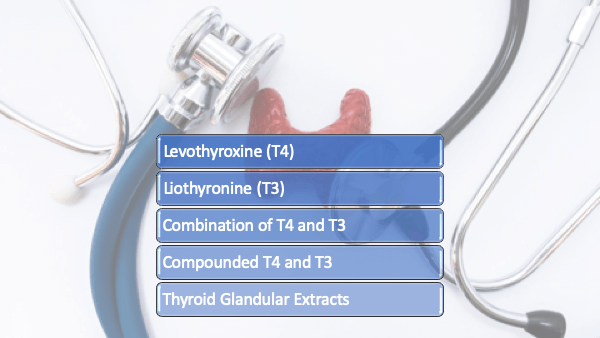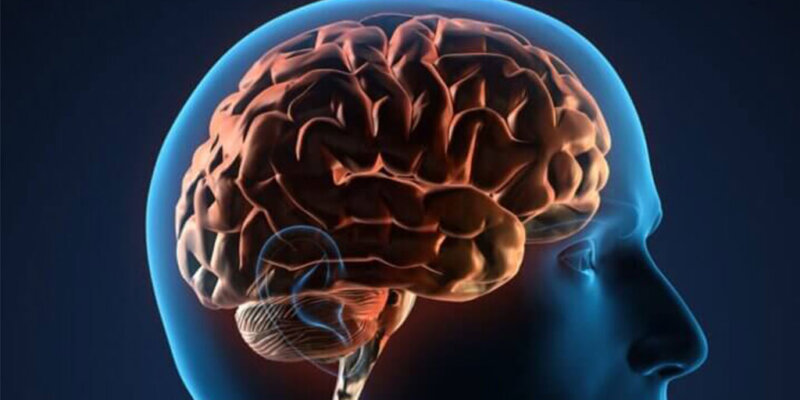(An earlier version was posted in May 2016)
Hypothyroidism is a condition where your thyroid gland produces insufficient thyroid hormones. The most common cause of hypothyroidism is an autoimmune condition called Hashimoto’s Thyroiditis, where your body’s own immune system destroys your thyroid tissue.
Dissatisfied By Thyroid Treatment
In 2017 the American Thyroid Association did an online survey ((1))of people with hypothyroidism. About 12,000 people responded to the survey.
This is what they said about their treatment:
| How satisfied are you with the treatment you receive? 1 = not satisfied 10 = very satisfied | 5 |
| If you are not satisfied, indicate relevant areas you feel are affected by your thyroid treatment | |
| Weight management | 69% |
| Fatigue or energy levels | 77% |
| Mood | 45% |
| Memory | 58% |
| How satisfied are you with your current physician who treats you for your thyroid condition? 1 = not satisfied 10 = very satisfied | 6 |
| How knowledgeable is your doctor and/or physicians in general about hypothyroid treatment? 1 = not knowledgeable 10 = very knowledgeable | 5 |
| How would you rate the need for new treatments for hypothyroidism? 1 = no need 10 = strong need | 10 |
What Are The Different Treatment Options For Thyroid Hormone Replacement?

LEVOTHYROXINE (T4)
Levothyroxine is the most common treatment for Hypothyroidism. This is available under different names in different parts of the world. Synthroid, Eltroxin, and Thyronorm are some of the common names. Standard of care recommends the use of Levothyroxine (T4) to replace deficient T4 at doses sufficient to normalize your levels of TSH. However, is this enough?
T4 is bound to proteins in your blood and only a small fraction is free (unbound). The free portion is available for your body to use.
Conversion Of T4 to T3
T3 or tri-iodothyronine is the active hormone that performs most of the thyroid functions in the body. (There are T1 and T2 and rT3 as well. Will discuss them later).Interestingly only about 20 percent of the T3 in your body is produced by the thyroid gland.
Where does the remaining T3 come from? The other 80 percent of T3 is produced from the conversion of T4 in your kidneys, liver, muscle, brain, skin, and placenta.
When you take replacement doses of T4 your body is expected to convert to T3. However, the conversion of T4 in tissues depends on enzymes called deiodinases. ((2))There are 3 different types of deiodinases, D1, D2, D3. It is possible that variations in the genes((3)) may result in different responses to T4 replacement. Studies have shown that people with a genetic variation in the D2 gene had better brain benefits when using a combination of T3 and T4.
LIOTHYRONINE (T3)
If you do not convert T3 from T4 efficiently, replacement doses of T3 can be combined with T4. Synthetic T3 (Cytomel ) and compounded T3 are the available options.
T3 is almost never prescribed alone.
Additionally, T3 has a lower half-life than T4. This means that while you can get adequate T4 in your blood by using T4 replacement once daily, T3 may need twice-daily dosing.
COMBINATION OF T4 AND T3
A combination of T4 and T3 may be either synthetic Levothyroxine like Synthroid or Thyronorm along with Cytomel or a combination bioidentical T3 and T4.
A significant number of people with hypothyroidism on T4 monotherapy (only T4) treatment feel that they have depression, anxiety and a poor quality of life despite having normal TSH levels.
Both the American Thyroid Association ((4)) and the European Thyroid Association ((5))in their guidelines have suggested that in select cases a trial of T4 and T3 combination may be considered, provided it is supervised by an expert in the field.
DESSICATED THYROID EXTRACTS/THYROID GLANDULAR EXTRACTS
Desiccated Thyroid Extracts (DTE) or Thyroid Glandulars are cleaned, dried and powdered extracts from animal thyroid glands, most commonly pigs and cows. Because of the animal source, for religious reasons, DTE is not used in many parts of the world.
Extracts of animal thyroids have been used for a long time, but once synthetic levothyroxine and accurate thyroid function tests were available, the use of DTE declined. However, in recent years DTE has grown in popularity because of the idea that additional substances contained in animal extracts like T2 may have added benefits. However, research in human T1 and T2 is still in its early days.
What about the ratio of T4:T3 in DTE?
DTE presently available as Armour Thyroid or Nature Thyroid are standardized preparations containing T4 and T3 in the ratio of 4.2:1. However, the normal human thyroid gland produces hormones in the ratio of 14:1. Therefore, using DTE has the potential to provide more T3 than is necessary. This can cause hyperthyroidism symptoms of anxiety, tremors, sweating, etc. if not monitored well.
However, using T4 monotherapy doesn’t always restore the normal T4:T3 ratio either.
Crossover studies comparing DTE and T4 ((6))have shown that users of DTE had modest weight loss and about half of them preferred to remain on DTE rather than T4.
DTE is from animal origin. Therefore there is a possibility that it may worsen autoimmunity, though clinical studies are not available to support refuting this concern.
COMPOUNDED COMBINED T4 AND T3
The advantage of using custom-compounded T4 and T3 is the ability to control the ratio of T4 and T3. Standard pharmaceutical T4 and T3 are available at fixed doses. Sometimes this can be a challenge in customizing the right dose.
If you are allergic/sensitive to inactive ingredients in tablets like starch, colors, lactose, etc, a custom-compounded preparation may be a better option for you.
QUALITY CONTROL OF COMPOUNDING PHARMACIES
The compounding pharmacy is the most important part of optimal thyroid treatment when using custom-compounded hormones. If not done correctly, the potential risks are extremely high. This report ((7))from Max Healthcare Delhi reports a 62-year-old lady who was accidentally supplied with a preparation containing extremely high amounts of T4. Her T4 and T3 levels exceeded the laboratory detection range and she was in a coma! Fortunately, her doctors were able to save her!
BOTTOMLINE
- Dissatisfaction about the treatment of hypothyroidism is quite common.
- There is no one-size-fits-all treatment.
- Your treatment options will depend on several factors, chiefly your doctor’s expertise and the thyroid preparations available in your country.
- Quality control of custom-compounded hormones is very important.
- Optimal treatment will involve looking at multiple areas like nutrient depletion, endocrine-disrupting chemicals, gut health, and stress management along with rational thyroid hormone replacement.


